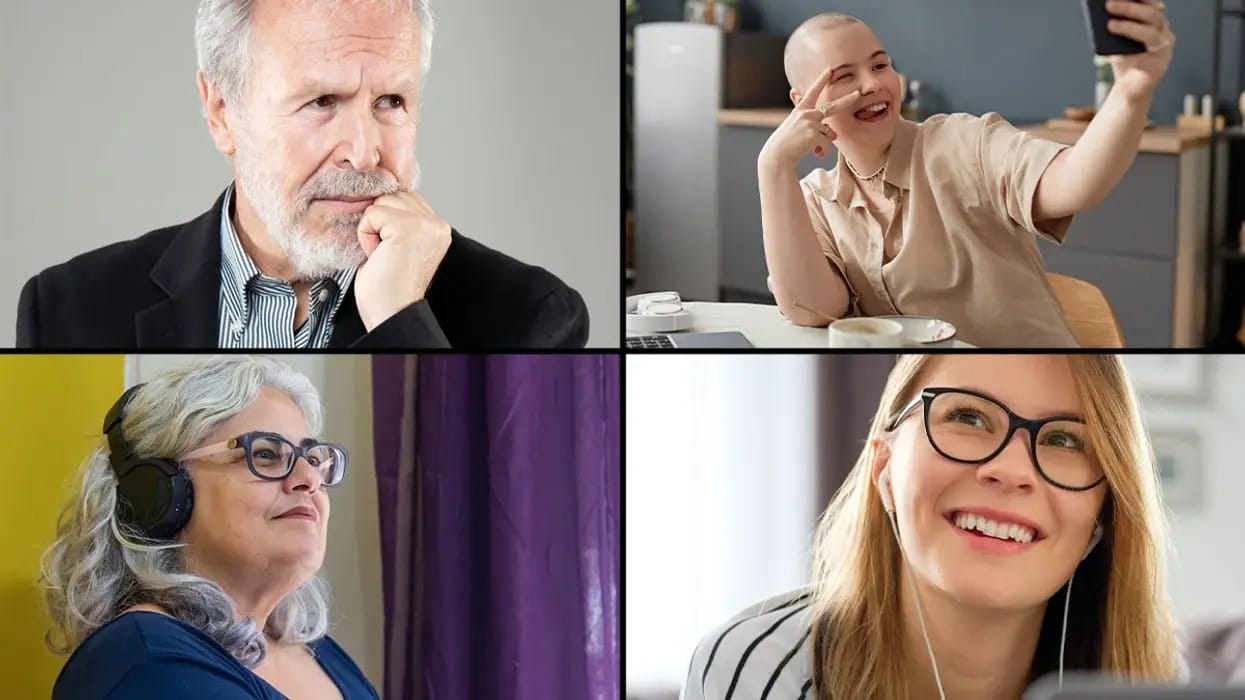- The Daily GOOD
- Posts
- Why Gen Z and Boomers see 'respect' so differently
Why Gen Z and Boomers see 'respect' so differently
Respect means different things to different generations, looking people in the eye may actually be rude, and showing up on time isn't just a GOOD idea.
🎶 R E S P E C T, find out what it means to Gen Z 🎶
What do a Boomer in loafers, a Gen Xer in denim, a Millennial with a podcast, and a Gen Z’er in Doc Martens all have in common? Perhaps not much, but they all care deeply about respect. They just don’t agree on what it looks like.
For some, it’s about tradition. For others, boundaries. Some think it should be automatic; others think it has to be earned. And that’s where it gets messy.
Mark Wales dives into how each generation thinks about respect and how these differing definitions might be the root of our cultural misfires. From “respect your elders” to “respect my pronouns,” this isn’t just a semantics debate. It’s about what we value, who we trust, and how we show up for each other.
Spoiler: everyone thinks they’re the ones doing it right.

Which generation’s definition of respect feels right to you?We all want it, but what does it look like? |
And what did we learn?
Yesterday’s poll asked which part of the school experience would make the most impact in the workplace and the clear winner was “Report Cards”. I guess people just want to know how they’re doing!
Report cards (50.0%)
Detention (16.7%)
Parent conferences (16.7%)
Names on the whiteboard (16.7%)
Find out why 1M+ professionals read Superhuman AI daily.
In 2 years you will be working for AI
Or an AI will be working for you
Here's how you can future-proof yourself:
Join the Superhuman AI newsletter – read by 1M+ people at top companies
Master AI tools, tutorials, and news in just 3 minutes a day
Become 10X more productive using AI
Join 1,000,000+ pros at companies like Google, Meta, and Amazon that are using AI to get ahead.
Why that awkward glance-away might have nothing to do with you.
We’ve all been told to “make eye contact”, in job interviews, on dates, in polite conversation. But as Erik Barnes explains, some people instinctively look away not because they’re shy or dismissive, but because their brains have learned that eye contact isn’t safe.
PTSD, social anxiety, autism, and other experiences can make direct gaze feel overwhelming, even threatening. And it’s not just emotional. Studies show that eye contact can drain cognitive resources. For some, breaking it isn’t avoiding connection, it’s how they can connect.
An 87-year-old CEO’s time obsession is clashing with the TikTok generation
George Gellert, 87-year-old CEO of a $1.7 billion food empire, swears by punctuality. But to Gen Z? That just sounds like anxiety with a wristwatch. A recent survey found that nearly half of Gen Z thinks being 5–10 minutes late still counts as “on time.” Gasp!
“One minute late is the same as an hour late.”
The disconnect isn’t just generational, it’s cultural. Younger workers are navigating post-pandemic realities, polyworking to survive, and pushing back on a system that often doesn’t invest in them. Promotions? Rare. Raises? Meh. Flexibility and boundaries? Non-negotiable. Gellert, despite his old-school clock-watching, actually agrees: Companies aren’t giving workers enough to show up for.
As Erik Barnes explores in this story, the problem might not be Gen Z’s clocks, it’s corporate culture’s broken compass.
💬From the group text…
Technology and definitions of respect may shift and change, but peeking behind the curtain of an amazing trick is a timeless delight. Check out how this amazing shot was achieved almost a century ago.
Until next time, may the world give you the respect you deserve in the flavor you like best.







